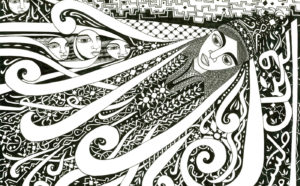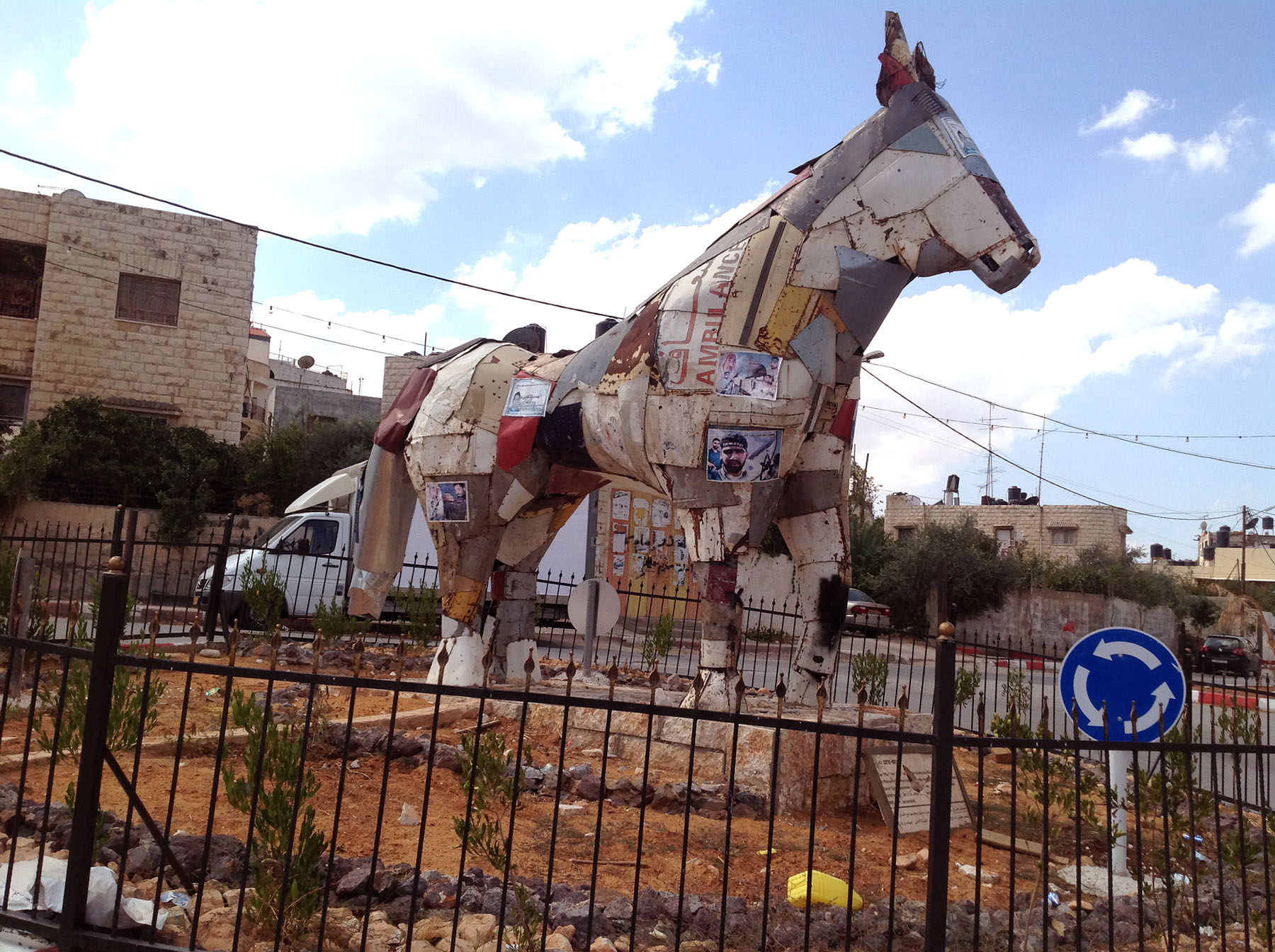
Zakaria Zubeidi is not just a single person but a whole generation of Palestinians in the West Bank who are caught up in an impossible dilemma, having to choose between a painful, but real, struggle for freedom and political compromises, which, in Zakaria’s own words, “have achieved nothing.”
Ramzy Baroud
Zakaria Zubeidi is one of six Palestinian prisoners who, on September 6, 2021, tunneled their way out of Gilboa, a notorious, high-security Israeli prison. Zubeidi was recaptured a few days later. The large bruises on Zubeidi’s face told a harrowing story, that of a daring escape and of a violent arrest. However, the story does not begin, nor end, there.
Twenty years ago, following what has been etched in the collective Palestinian memory as the Jenin Massacre, I was introduced to the Zubeidi family in the Jenin refugee camp, which was almost entirely erased by the Israeli army during and following the Jenin battle.
Despite my repeated attempts, the Israeli army prevented me from reaching Jenin, which was kept under total Israeli military siege for months following the most violent episode of the entirety of the Second Palestinian Uprising (2000-2005).
I could not speak to Zakaria directly. Unlike his brother, Taha, Zakaria survived the massacre and subsequently rose in the ranks of Al-Aqsa Martyrs’ Brigades, the armed wing of the Fatah movement, to become its leader, thus topping the list of Israel’s most wanted Palestinians.
Most of our communication was with his sister, Kauthar, who told us in detail about the events that preceded the fateful military siege of April. (See full testimony below.) Kauthar was only 20 years old at the time. Despite her grief, she spoke proudly about her mother, who was killed by an Israeli sniper only weeks before the invasion of the camp and about her brother, Taha, the leader of the Al-Quds Brigades, the armed wing of the Islamic Jihad in Jenin at the time; and of Zakaria, who was now on a mission to avenge his mother, brother, best friends and neighbors.
“Taha was killed by a sniper. After he was killed, they fired shells towards his body, and completely burned it. This was in the Damaj neighborhood. The shebab gathered what remained of him and put him in a house. Since that day, that house has been known as ‘The house of the hero.’”
Kauthar also told me about her mother, Samira, 51, “who spent her life going from one prison to another to visit her kids.” Samira was loved and respected by all the fighters in the camp. Her children were the heroes that all the youngsters attempted to emulate. Her death was particularly shocking.
“She was hit with two bullets in the heart,” Kauthar said. “Once she turned around, she was hit in the back. Blood poured out of her nose and mouth. I didn’t know what to do but scream.”
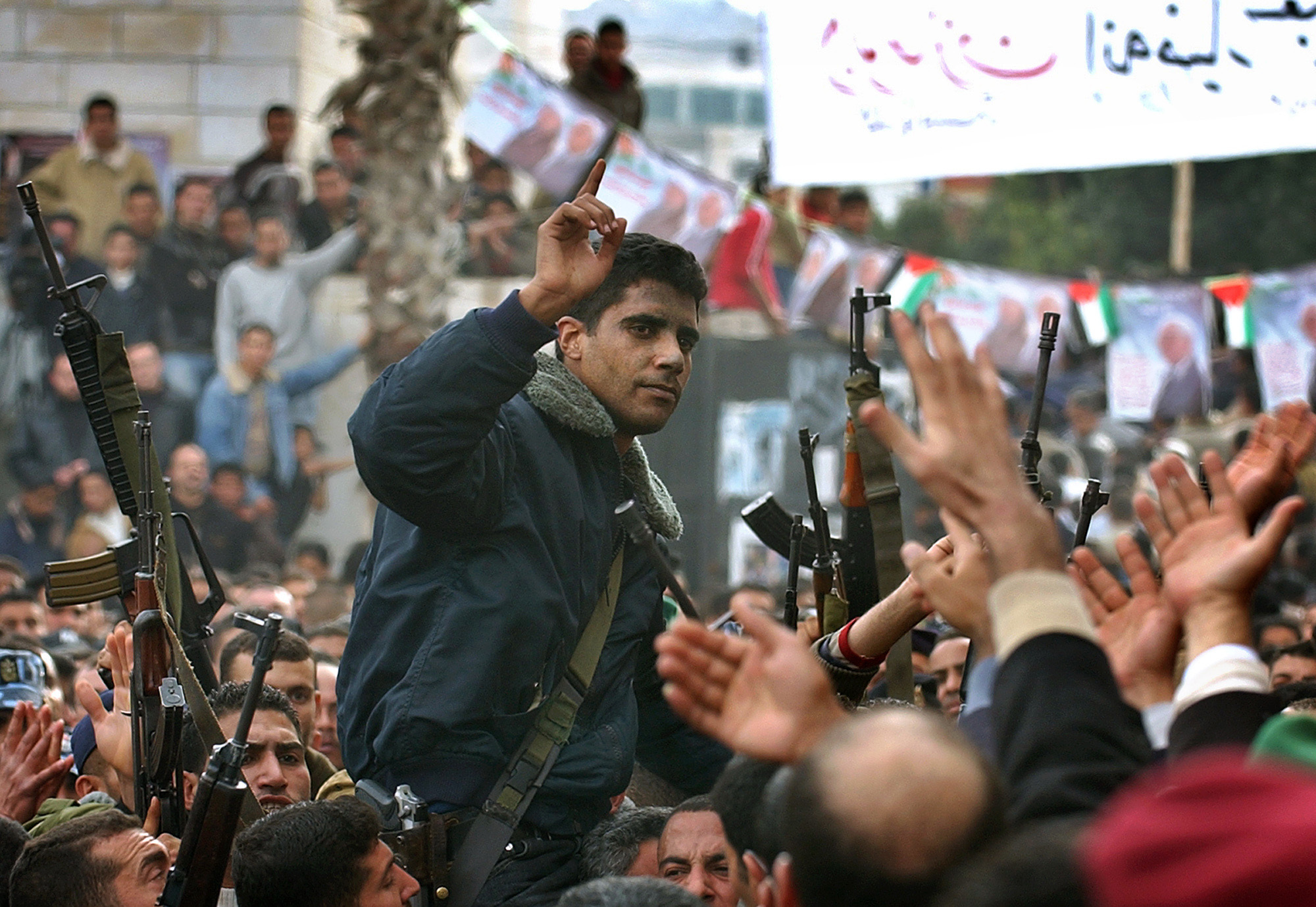
Zakaria immediately went underground. The young fighter was feeling aggrieved at what had befallen his beloved Jenin, family, mother and brother — the latter’s wedding was scheduled one week from the day he was killed. He was also feeling betrayed by his Fatah ‘brothers’ who continued to openly collaborate with Israel, despite the mounting tragedies in the occupied West Bank, and by the Israeli left that abandoned the Zubeidi family despite promises of solidarity and camaraderie.
“Every week, 20-30 Israelis would come there to do theatre,” Zakaria said in an interview with ‘The Time’ magazine, with reference to the ‘Arna’s House’ theater, which involved Zakaria and other Jenin youngsters, and was established by Arna Mer-Khamis, an Israeli woman who was married to a Palestinian. “We opened our home and you demolished it … We fed them. And, afterwards, not one of them picked up the phone. That is when we saw the real face of the left in Israel.”
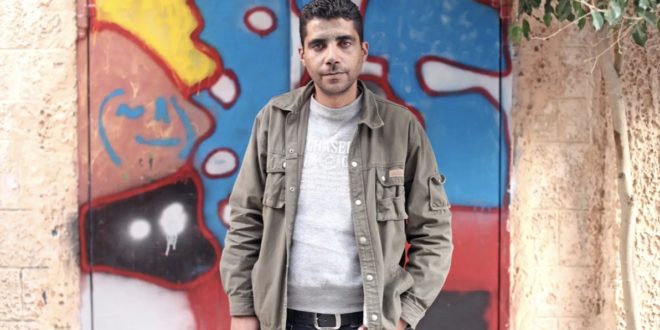
Of the five children who participated in the ‘Arna’s House’ theatre, Jenin’s Freedom Theatre, only Zakaria survived. The rest had joined various armed groups to fight the Israeli occupation and were all killed.
Zakaria was born in 1976 under Israeli occupation, therefore never experienced life as a free man. At 13, he was shot by Israeli soldiers for throwing stones. At 14, he was arrested for the first time. At 17, he joined the Palestinian Authority security forces, believing, like many Palestinians at the time, that the PA’s ‘army’ was established to protect Palestinians and to secure their freedom. Disillusioned, he left the PA less than a year later.
Zakaria only committed to armed struggle in 2001, as a way of achieving freedom for his people, months after the start of the Second Intifada. One of his childhood friends was one of the first to be killed by Israeli soldiers. In 2002, Zakaria joined the Al-Aqsa Martyrs’ Brigades, around the time that his mother, Samira, and his brother, Taha, were killed.
2002, in particular, was a decisive year for the Fatah movement, which was practically, but unofficially, divided into two groups: one that believed that armed struggle should remain a strategy for liberation, and another that advocated political dialogue and a peace process. Many members of the first group were killed, arrested or marginalized, including Fatah’s popular leader, Marwan Barghouti, who was arrested in April 2002. Members of the second group grew rich and corrupt. Their ‘peace process’ failed to deliver the coveted freedom and they refused to consider other strategies, fearing the loss of their privileges.
Zakaria, like thousands of Fatah members and fighters, was caught up in this ongoing dilemma, wanting to carry on with the struggle as if PA President Mahmoud Abbas’ leadership was ready to risk it all for the sake of Palestine, while remaining committed to the Fatah party, hoping that, perhaps, someday the movement would reclaim the mantle of Palestinian resistance.
The trajectory of Zakaria’s life, so far, is a testament to this confusion. He was not only imprisoned by the Israelis, but also by the PA. Sometimes, he spoke highly of Abbas only to, later, disown all the treachery of the Palestinian leadership. He surrendered his weapon several times, only to retrieve it with the same determination as before.
Though Zakaria is now back in prison, his story remains unfinished. Scores of young fighters are now roaming the streets of the Jenin refugee camp, vowing to carry on with armed struggle. Namely, Zakaria Zubeidi is not just a single person but a whole generation of Palestinians in the West Bank who are caught up in an impossible dilemma, having to choose between a painful, but real, struggle for freedom and political compromises, which, in Zakaria’s own words, “have achieved nothing.”
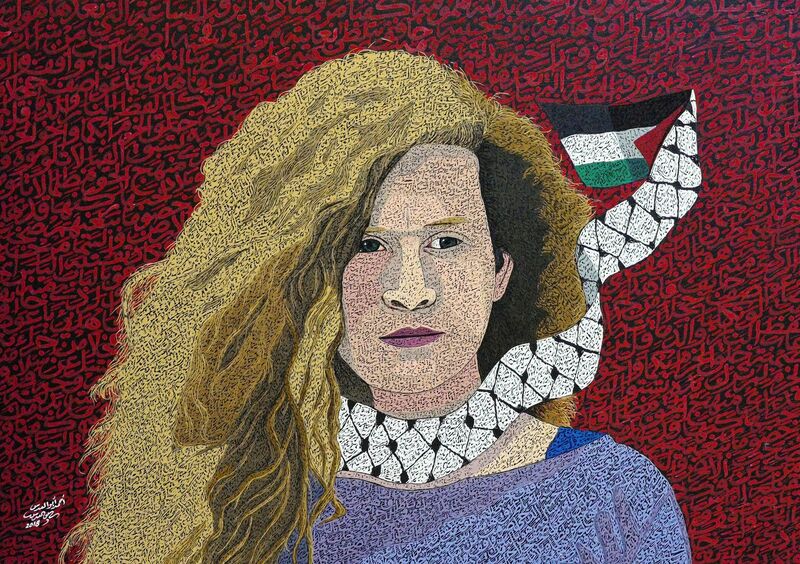
Love and Death in Jenin
The following testimony was provided by Kauthar Zubeidi, Zakaria’s sister, following the Israeli invasion which led to the Massacre of Jenin in April 2002. A version of this testimony was used in my book Searching Jenin: Eyewitness Accounts of the Isreali Invasion (Edited by Ramzy Baroud, Preface by Noam Chomsky. Cune Press: 2003). At the time, Kauthar was 20 years old.
When the Israelis invaded, we remained in our house, but later sought shelter in my father-in-law’s house, since we felt it was safer. But then my in-law’s house, too, came under fire. The resistance in Jenin was fierce, even though the shebab were fighting with simple weapons.
Eventually, we moved to a third house, but this time there were no other possible escapes. The house was attacked and we couldn’t run out. There were nearly thirty people in the house, old and young. We all scrambled to take cover in the bathroom.
The young fighters outside had plenty of faith but they had little food and water. So we used to risk our lives to sneak some food out for them. They would say, “Don’t do that again, you don’t want to get killed.” But we kept doing it anyway.
When we were trapped in the bathroom, once the shelling would cease for a moment, we used to try to listen to see if the Jenin fighters were still there. We used to feel a great sense of relief once we heard them talking outside. It meant that they were still alive, and fighting.
My brother Taha was with the resistance. Those who were with him said Taha was the head of the resistance in his (Al-Aqsa Brigades) group. He was always so worried about the safety of the people. My sister’s fiancé went to that area once during the invasion. Taha told him to go back, saying, “Are you going to make my sister a widow before you are even married?”
Later we learned that Taha was killed by a sniper. After he was killed, they fired shells towards his body, and completely burned it. This was in the Damaj neighborhood. The shebab gathered what remained of him and put him in a house. Since that day, that house has been known as “The house of the hero.” Then we brought his remains, and buried him near our house temporarily before we took him to the Martyrs’ Graveyard. For some reason I did not expect that Taha would be killed. He was our protector.
My mother was a great woman. She was fifty-one years old when she was martyred. She spent her life going from one prison to another to visit her kids. My father, God bless his souls, was also a resistance fighter, as were all my brothers. My mother was a woman who was loved by everyone. Yes, she was fifty-one, but we felt like she was from our generation. She treated us with respect and understood each one of us separately. She was very much respected by all of the fighters.
When my mother was martyred, we were outside of our house. We were told that the Israelis would destroy our house at any moment. She was very nervous about the safety of her sons. She kept moving from one window to the other. Just before we realized the danger, snipers opened fire. She was hit with two bullets in the heart. Once she turned around, she was hit in the back. We did not realize that she was wounded because she ran for a distance.
Once she fell to the ground, we assumed that she just fainted from shock. But then blood poured out of her nose and mouth. I didn’t know what to do but scream. I had a strange feeling, my mother was looking at me, and I was trying to understand what she could possibly want to say in her last moment of life. Our neighbor lady looked at her and said, “Just proclaim, ‘There is no God but Allah’.” Then she died.
Once the resistance fighters knew that she had been killed, they came to the house in four cars. Taha refused to come, he was in the Damaj neighborhood. He said, “I will not come to see my mother until I avenge her.” He was able to strike an Israeli tank, then he came to say goodbye.
My relationship with my brothers is very strong because of my mom. We are all good friends. I still see my brother Taha in my dreams. In my dreams, he opens the door and then he comes and starts joking with me. Then he goes and I start crying, asking him to come back.
[In Jenin, the Zubeidi home is considered a main pillar of resistance. Taha was killed during the invasion. He was to be married a week after he was shot dead by a sniper. He was a leader in Al-Quds Brigade, the military wing of the Islamic Jihad movement. His brother Yahya was arrested during the invasion. Later, Zakaria became the leader of the resistance in Jenin. Their mother Samira was killed in an earlier Israeli invasion of the camp.]



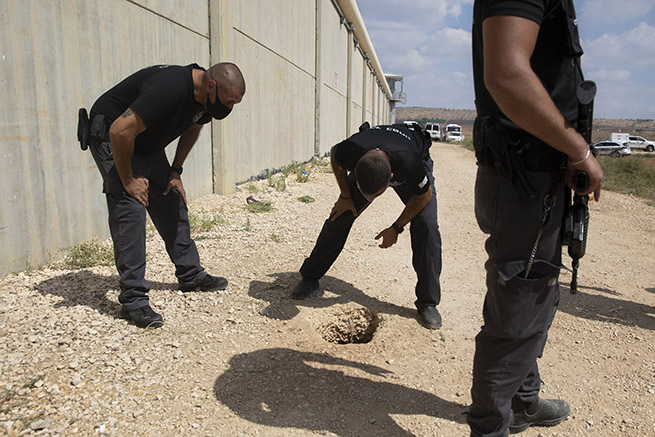
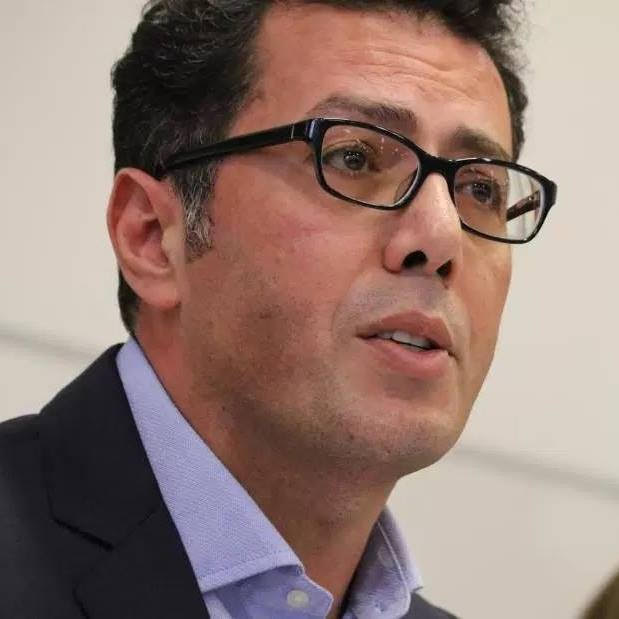



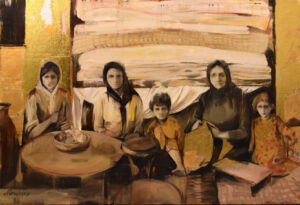

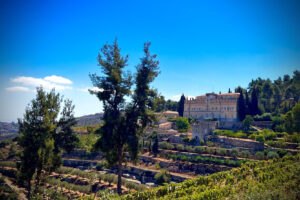

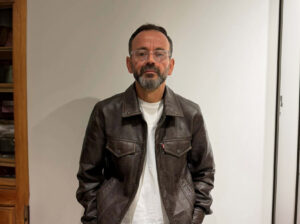











































































![Fady Joudah’s <em>[…]</em> Dares Us to Listen to Palestinian Words—and Silences](https://themarkaz.org/wp-content/uploads/2024/03/SAMAH-SHIHADI-DAIR-AL-QASSI-charcoal-on-paper-100x60-cm-2023-courtesy-Tabari-Artspace-300x180.jpg)

































































